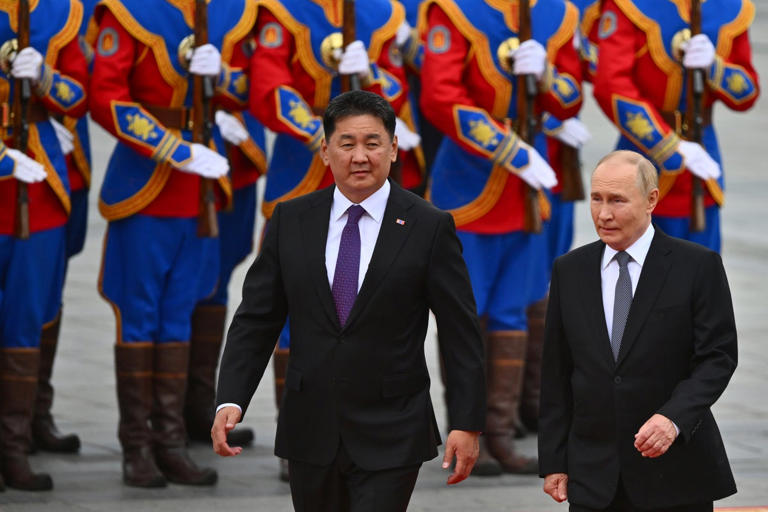Russian President Vladimir Putin’s visit on 2 September to Mongolia, a member state of the International Criminal Court (ICC) that has issued an arrest warrant against him since 2023, is yet another example of the waning influence of international institutions that were set up with the objective of keeping the world in order. Mongolia was bound to arrest Putin as mandated by the court’s founding treaty, the Rome Statute. The ICC has accused Putin of being responsible for the abduction of children from Ukraine, where a war of Russian aggression has raged for two and a half years. Instead, the Central Asian country rolled out a red carpet to welcome the Russian president, much to the chagrin of Ukraine and its Western allies.
Ukraine’s foreign ministry stated that Mongolia’s decision not to arrest Putin under an ICC warrant represents a “significant setback” for the international criminal law system. Heorhiy Tykhyi, a spokesperson for the Ukrainian foreign ministry, remarked: “Mongolia has permitted a wanted criminal to escape justice, thus sharing in the responsibility for the war crimes.”
Mongolia, home to only 3.3 million residents yet vast in land area, has historically managed its foreign policy under the influence of Russia and China, with which it shares deep historical and economic connections. Of late, to enhance its autonomy from these dominant neighbours, Mongolia has sought to cultivate friendly relations with various “third neighbour” countries, such as the United States, Germany, Japan, and South Korea. This strategy aims to establish Mongolia as a unique player on the global stage, positioning it as a neutral venue for diplomatic discussions. However, Putin’s visit presented a challenge for the country as it navigates its commitments and alliances within the Western-led international order, which includes the ICC, while also striving to maintain amicable relations with its influential neighbours.
The Russian leader received a rousing reception in Ulaanbaatar’s main square, greeted by a guard of honour clad in striking red and blue uniforms inspired by the personal guards of Genghis Khan, the 13th-century founder of the Mongol Empire. Putin and Mongolian President Khurelsukh Ukhnaa ascended the red-carpeted steps of the Government Palace and paid their respects at a statue of Genghis Khan before proceeding inside for their discussions. A small group of protesters attempted to display a Ukrainian flag prior to the ceremony but were escorted away by the police, while a few demonstrators held posters that read: “Get war criminal Putin out of here.”
Prior to his visit, Ukraine had urged Mongolia to surrender Putin to the court in The Hague, even as the European Union voiced concerns that the Central Asian country might not carry out the warrant. Anyways, the ICC does not possess a robust enforcement mechanism, and member states may be exempt from making arrests if it conflicts with specific treaty obligations or diplomatic immunity granted to another party.
Putin’s undeterred visit highlights the limited ability that global bodies have to hold Moscow, or for that matter any violators of international laws, accountable for crimes against humanity. Similar has been the impact of the hordes of sanctions imposed on Russia. Following its invasion of Ukraine in February 2022, the US, UK and the EU, along with nations such as Australia, Canada, and Japan, have imposed over 16,500 sanctions against Russia. Yet, the Russian war machine continues ravaging innocent lives. This once again demonstrates the toothless tiger status that international laws and sanctions have gained for themselves. Such events will make their implementation even more difficult in future.
